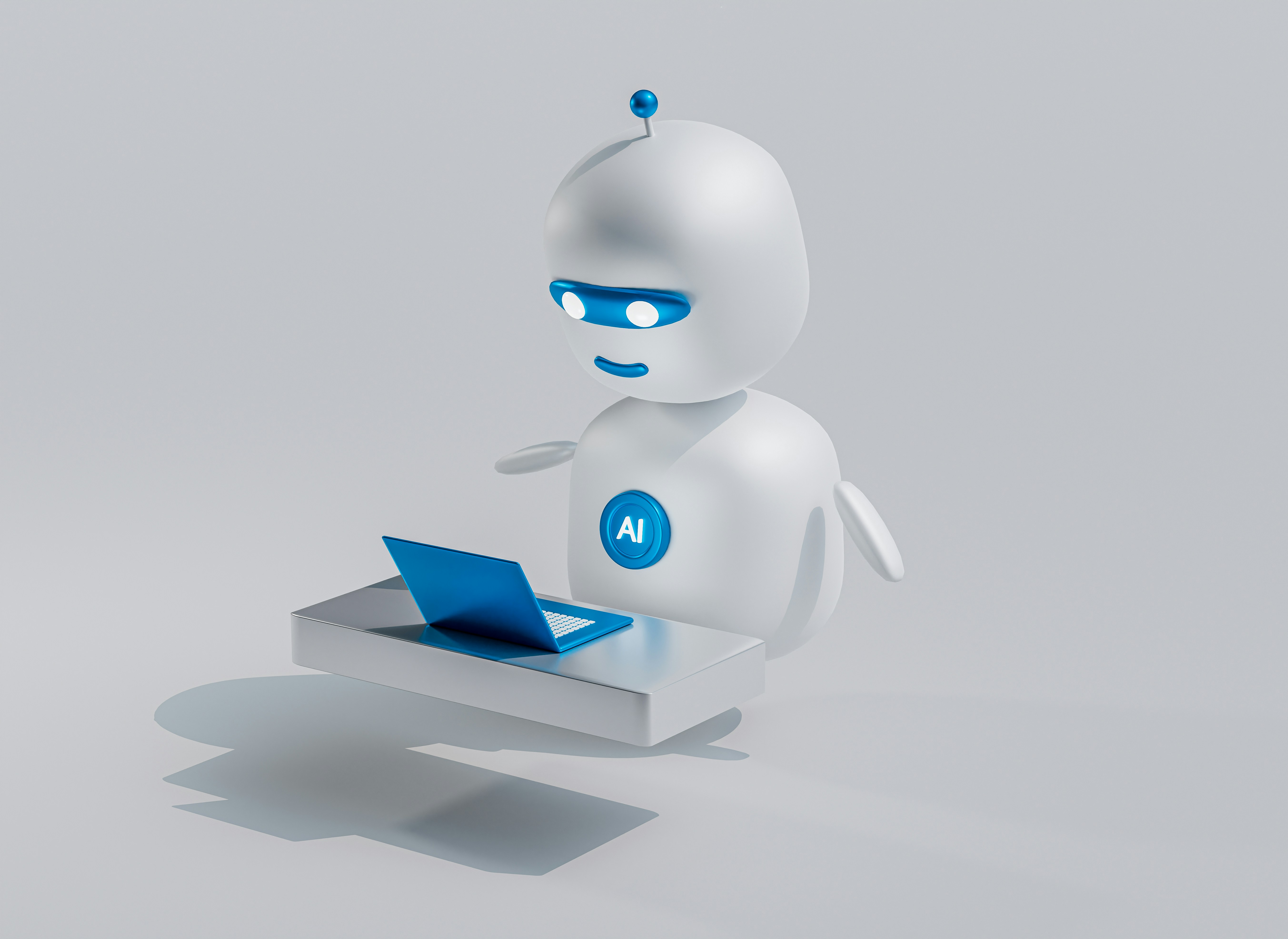Introduction to AI Automation
The advent of AI automation is rapidly transforming the landscape of modern workplaces, heralding a new era of operational efficiency and productivity. In the fast-paced environment of 2025, companies must leverage advanced tools and technologies to stay ahead of their competition. AI automation is at the forefront of this shift, enhancing organizational capabilities by integrating machine learning and intelligent systems into everyday processes.
One of the most significant advantages of AI automation is its ability to streamline operations across various industries. By automating repetitive tasks, businesses can free up valuable time for employees to focus on higher-level strategic initiatives. In the tech sector, for instance, Software as a Service (SaaS) solutions are increasingly incorporating AI capabilities that enable more robust data analysis and decision-making, thus driving innovation forward. As organizations harness these tools, they are not just improving individual workflows but are also fostering a culture of collaboration and agility.
Moreover, the importance of AI automation extends beyond mere operational improvements. As businesses increasingly engage in affiliate marketing and digital outreach, sophisticated AI-driven analytics play a critical role in understanding consumer behavior and optimizing marketing strategies. Platforms equipped with AI technologies can analyze vast amounts of data, identifying trends and preferences that empower businesses to tailor their offerings accordingly. This targeted approach ultimately translates into higher conversion rates and increased revenues.
In a competitive landscape, adopting AI automation tools is no longer optional; it is a necessity for organizations aspiring to thrive in the future. The potential productivity boosts available through the implementation of these technologies are profound. Companies that invest in AI will not only enhance profitability but also create environments that are adaptive to rapid changes in market demands.
Criteria for Selecting the Best AI Tools
When it comes to selecting the best AI automation tools, particularly for a tech SaaS blog focused on affiliate marketing, there are several critical criteria to consider. Evaluating these aspects can ensure that users choose solutions that align with their productivity goals while offering effective high CPM options.
One of the foremost criteria is ease of use. Users should look for AI tools that have a user-friendly interface and require minimal training to operate. A tool with an intuitive design will not only enhance efficiency but also increase the likelihood of adoption across teams. Additionally, comprehensive documentation and tutorials can significantly reduce the initial learning curve.
Integration capabilities are another essential factor. The best AI automation tools should seamlessly integrate with existing systems and software. This compatibility allows for smooth data transfer and enhances overall productivity by minimizing disruptions. When evaluating a tool, check if it connects easily with other platforms commonly used in affiliate marketing efforts or within tech SaaS environments.
Scalability is vital as well; businesses often experience growth and changes in demand. Selecting tools that can scale according to an organization’s evolving needs is crucial. This means looking for solutions that can handle increased workloads without a drop in performance or requiring excessive additional investment.
Customer support should not be overlooked when choosing an AI tool. Reliable and dedicated support can make a significant difference, especially during critical times. It is beneficial to review users’ feedback regarding the responsiveness and effectiveness of the customer service team attached to the tool.
Lastly, analyzing the return on investment (ROI) is paramount. Potential users should assess how the selected AI tool contributes to productivity, reduces costs, and ultimately drives profitability. By weighing these factors, one can make a well-informed decision on which AI automation tools will significantly enhance their operational efficiency.
The Top 10 AI Automation Tools of 2025
As we look ahead to 2025, several AI automation tools are poised to significantly enhance productivity across diverse sectors. These tools integrate advanced machine learning algorithms and data analytics to streamline tasks and improve operational efficiency. Below, we explore ten leading solutions that can help organizations leverage technology for maximum effect.
1. Trello AI: This project management tool now incorporates AI features that allow for smart task organization. It learns from past project data to automate task allocations, predict deadlines, and suggest optimal workflows, making it invaluable for teams managing complex projects.
2. Zapier AI: By automating data transfers between applications, Zapier AI eliminates repetitive tasks. It enables businesses to connect different SaaS platforms, allowing for a streamlined workflow conducive to faster decision-making.
3. Monday.com: This versatile platform offers an AI-driven dashboard that tracks project progress in real-time. It utilizes data to forecast project outcomes, thereby assisting teams in resource distribution to enhance efficiency, which is particularly useful in collaborative environments.
4. ChatGPT for Customer Support: Utilizing natural language processing, this AI tool revolutionizes customer service by providing instant responses to inquiries. Businesses report improved customer satisfaction through faster resolution times and smarter issue handling.
5. Microsoft Power Automate: This tool automates workflows between various applications and services, optimizing operational strategies. Its integration capabilities mean tasks can be triggered based on specified events, thus ensuring that critical workflows remain uninterrupted.
6. Tableau with AI: Known for its data visualization capabilities, Tableau now employs AI to uncover insights from data automatically. This functionality provides organizations with crucial information that can shape business strategy and drive better decisions.
7. HubSpot AI: HubSpot’s marketing automation tool integrates AI to analyze customer interactions, helping businesses fine-tune their campaigns. By understanding behaviors, marketers can tailor their strategies for more effective engagement.
8. Asana: The latest iteration of Asana comes with AI features that facilitate team collaboration by suggesting optimal task deadlines and priorities based on historical data. This assists in keeping projects on track and within timelines.
9. Notion: Notion harnesses AI for personal productivity and team collaboration. Its smart document management system learns user preferences to automate note-taking and organizing, enhancing the efficiency of content creation.
10. Salesforce Einstein: As an AI layer over Salesforce’s CRM features, Einstein provides predictive analytics, automating lead scoring and facilitating advanced customer interactions. This allows sales teams to focus their efforts on high-potential leads, effectively improving conversion rates.
These tools are set to transform work processes in 2025, promoting higher efficiency and ultimately leading to improved business outcomes. By incorporating AI into daily operations, companies can reduce manual effort, enabling teams to focus on strategic initiatives rather than routine tasks.
Future Trends in AI Automation
As we look towards 2025, the landscape of AI automation is expected to undergo significant transformations, particularly within the realm of businesses leveraging high CPM affiliate marketing strategies. Emerging technologies, such as sophisticated machine learning algorithms and enhanced natural language processing, are paving the way for tools that can automate complex tasks with unprecedented accuracy. These advancements will challenge companies to rethink their current processes and adopt a more strategic approach to utilizing automated solutions in their operations.
One notable trend is the shift towards hyper-autonomous systems, which can function with minimal human intervention. As AI tools become increasingly capable of learning from data and improving over time, businesses must prepare to integrate these automated systems into their workflows. This integration will not only streamline operations but also facilitate data-driven decision-making, ultimately leading to improved performance and efficiency. Industries such as tech SaaS are particularly well-poised to benefit, as these tools can automate customer management, enhance user experience, and optimize service delivery.
However, the transition to AI-driven workplaces is not without its challenges. Organizations will need to address potential skill gaps in their workforce, ensuring that employees are equipped with the necessary knowledge to collaborate effectively with AI systems. Continuous learning and professional development will become essential for employees as they adapt to new tools and methodologies. Having a proactive approach to training and development will help businesses remain competitive in the fast-evolving landscape of AI automation.
To successfully navigate this future, companies must prioritize adaptation and agility in their strategies. By staying updated with the latest advancements in AI and automation and embracing a culture of innovation, businesses can not only harness the potential of these technologies but also continue to thrive in an ever-changing marketplace.



